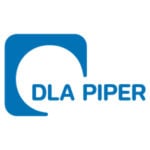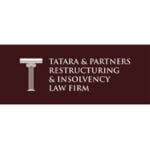-
What forms of security can be granted over immovable and movable property? What formalities are required and what is the impact if such formalities are not complied with?
In Hong Kong, various forms of security can be granted over immovable and movable property, each subject to specific formality requirements to ensure enforceability and priority.
For immovable property such as land and buildings, the most common form of security is a legal mortgage. Pursuant to section 44(1) of the Conveyancing and Property Ordinance (Cap. 219), a mortgage of a legal estate may be effected at law only by a charge by deed expressed to be a legal charge. This legal charge creates an encumbrance over the property, but there is no transfer of the mortgagor’s legal estate to the mortgagee. It gives protection, powers and remedies to a mortgagee, including foreclosure. However, the mortgagee normally may not enter into possession before any default by the mortgagor.
A mortgage must be registered at the Land Registry within one month of creation. Failure to register renders the mortgage null and void against any subsequent bona fide purchaser or mortgagee for valuable consideration.
Where the formalities for creation of a legal mortgage are not complied with, for example, where a mortgage is not effected by deed, the mortgage may take effect as an equitable mortgage. An equitable mortgage may also be created by depositing the title deeds with the mortgagee, provided that the deposit is made with the intention that the title deeds are to be held by the mortgagee as security for the repayment of the loan.
For movable property, security can take the form of a fixed charge, floating charge, pledge or lien.
A fixed charge may be created over specific and identifiable assets, such as large pieces of machinery or equipment. It restricts the chargor’s ability to freely deal with or exercise control over the charged assets without obtaining the chargee’s consent.
In contrast, a floating charge covers a class of assets which fluctuate in the course of the chargor’s business, such as inventory or receivables. The chargor can normally deal with, use and dispose of the assets in the ordinary course of business until an event of default occurs. Upon such an event, the floating charge would “crystallise” and be converted to a fixed charge over the specific assets covered by the charge at that time.
A pledge requires a constructive or actual transfer of possession of the property to the pledgee. A pledge generally convers on the pledgee a power of sale on default by the pledgor, but until then, the ownership of the assets remains with the pledgor.
A lien allows the lien holder to retain possession of the movable assets as security for an outstanding debt, such as unpaid service fees. While the lien holders typically have the right to retain the assets until the debt is satisfied, they do not have the right to sell the same in the event of default.
Under sections 335 and 336 of the Companies Ordinance (Cap. 622) (“CO622”), specified charges over company assets such as land, machinery, shares, book debts, ships, aircraft, etc., created by a Hong Kong incorporated company or a registered non-Hong Kong company must be registered with the Companies Registry within one month of creation by delivering a Statement of Particulars of Charge (Form NM1) together with a certified copy of the instrument at the Companies Registry.
Under section 337 of CO622, failure to register will render the charge void against any liquidator and creditor of the company. When the charge becomes void, at the lender’s option, the money secured by the charge will become immediately payable. Failure to register may constitute a criminal offence, and the company and every responsible person of the company may be liable to pay a fine.
-
What practical issues do secured creditors face in enforcing their security package (e.g. timing issues, requirement for court involvement) in out-of-court and/or insolvency proceedings?
In Hong Kong, secured creditors face several practical issues when enforcing their security package in both out-of-court and insolvency proceedings.
Out-of-court enforcement is often preferred and facilitated by provisions in security documents, which typically allow a secured creditor to appoint a receiver without Court’s involvement. Additionally, holders of legal mortgages or charges have statutory powers of sale under section 51(1) and the Fourth Schedule to the Conveyancing and Property Ordinance (Cap. 219), which can be exercised without any Court order. However, certain enforcement actions, such as foreclosure, do require Court’s approval.
Court proceedings related to enforcement, such as applications for leave to enforce or to appoint receivers, can be protracted. Moreover, proceedings such as mortgagee action, application for a charging order and an order for sale might take months to conclude (even if it is uncontested). Notably, the commencement of the said actions does not automatically freeze the relevant assets of the debtor, meaning it does not restrain the debtor from dealing with or otherwise disposing of the security.
Secured creditors may also face difficulties where cooperation from the chargor or third parties to obtain possession or control of the secured assets is needed. In such circumstances, Court’s intervention may be necessary, which would in turn increase the costs and delay the enforcement due to the complex Court’s procedures. To mitigate this risk, security documents often contain provisions that minimise reliance on chargor’s cooperation, such as power of attorney or pre-agreed right to appoint receivers or dispose of assets.
-
What restructuring and rescue procedures are available in the jurisdiction, what are the entry requirements and how is a restructuring plan approved and implemented? Does management continue to operate the business and / or is the debtor subject to supervision? What roles do the court and other stakeholders play?
In Hong Kong, there is no dedicated statutory corporate rescue procedure currently in operation. Although there have been legislative efforts to introduce a statutory corporate rescue procedure (including provisional supervision and restructuring officers) in order to provide a formal moratorium and structured rescue framework, such proposals have not yet been enacted. Companies seeking restructuring or rescue therefore have two main options: informal workouts and scheme of arrangement.
Informal workouts are out-of-court contractual arrangements negotiated between a debtor company and its creditors, which generally requires the cooperation of all creditors of the company as any one creditor may still exercise its right to wind up the company. Informal workouts allow flexibility but lack Court’s supervision and binding effect on the dissenting creditors, and are often ineffective when the company has too many creditors, such as a listed company.
A scheme of arrangement, governed by the Companies Ordinance (Cap. 622), involves a company making a compromise or arrangement with its creditors. The scheme is binding on all creditors once it is approved at the scheme meeting and sanctioned by the Court. The Court plays a crucial role in ensuring the scheme is fair and reasonable, and that the creditors have been given sufficient information to make an informed decision.
To promulgate a scheme, the company will have to first apply to the Court for an order to convene meetings of the creditors to consider the proposed scheme. The Court first holds a directions hearing to determine whether it has jurisdiction and whether the classification of creditors is appropriate.
For the scheme to be approved at the meeting, a majority in number representing at least 75% in value of the creditors present and voting in each class must agree to the scheme. If multiple classes are involved, all must approve the scheme. After creditors’ approval has been obtained at the scheme meeting, the company could apply to the Court for the sanction hearing, where the Court would scrutinise the procedural compliance and the fairness of the proposed scheme. Once sanctioned, the scheme becomes binding on all creditors (including the dissenting creditors).
During the restructuring process under a scheme of arrangement, management typically continues to operate the business. There is no automatic imposition of Court’s supervision over the company’s day-to-day operations unless the Court orders the otherwise or the terms of the scheme of arrangement stipulate such requirement. However, the Court and the creditors oversee the scheme process, and subject to the terms of the scheme, any material decisions related to the scheme may require creditor’s approval and Court sanction.
-
Can a debtor in restructuring proceedings obtain new financing and are any special priorities afforded to such financing (if available)?
In Hong Kong, a debtor company undergoing restructuring can obtain new financing as part of the restructuring process, but there is no specific statutory provision granting special priority or super-priority status to such new financing.
Since Hong Kong currently lacks a statutory corporate rescue procedure with an automatic moratorium or statutory priority for new financing, its availability and priority largely depend on negotiations between the debtor and its creditors, as well as the terms agreed in the restructuring plan or scheme of arrangement. The relationship between the debtor company and the financier is often governed by a funding agreement, and the return to the financier might be set out in the scheme of arrangement document (or the explanatory statements thereto), so that the creditors could consider the same and decide whether to support the scheme of arrangement.
In some cases, the debtor company may seek to include provisions in a scheme of arrangement that recognise the priority of new financing, but such provisions must be reasonable, and approved by the creditors and sanctioned by the Court to be binding.
-
Can a restructuring proceeding release claims against non-debtor parties (e.g. guarantees granted by parent entities, claims against directors of the debtor), and, if so, in what circumstances?
In Hong Kong, restructuring proceedings such as scheme of arrangement can, in certain circumstances, release claims against non-debtor parties. The Court’s starting point is to carefully consider the nature of the third-party release involved and whether they are justified.
The first type of third-party release is where a third party has provided guarantee or security in favour of the creditor’s claim to be compromised under the scheme. The rationale is that without releasing these third parties, they may bring contribution claims against the debtor company, effectively undermining the scheme’s purpose, as the company will remain liable for the claim it sought to compromise under the scheme. Such a release is generally regarded as necessary and justifiable for the implementation of the scheme.
The second type is a release which is explicitly part of the negotiated scheme between the debtor company and its creditors and has been properly approved by the relevant creditor classes. The Court would normally respects the commercial judgment of the creditors, so unless there is evidence of unfairness or procedural irregularity, the Court will generally be slow to differ from their views.
The third type is a release of directors, officers and professional advisers from liability associated with the negotiations, preparation, and implementation of the scheme, provided that liabilities arising from fraud, wilful default, gross negligence, or wilful misconduct are excluded. Such a release may be deemed reasonably necessary if it reduces the risk and costs of preparing the scheme, particularly where additional insurance coverage is required.
-
How do creditors organize themselves in these proceedings? Are advisory fees covered by the debtor and to what extent?
In Hong Kong restructuring proceedings, creditors typically organise themselves by forming classes based on the similarity of their legal rights. This classification is essential in every scheme of arrangement, where creditors within each class vote separately on the proposed restructuring plan. The Court oversees and approves the classification to ensure that it is fair and that each class is properly constituted and represented, preventing coercion or unfair treatment of any creditor group.
Depending on the terms negotiated in the restructuring and the financial capacity of the debtor company, the advisory fees are typically borne by the company or the funder (who might ultimately obtain an equitable stake in the company) as they are considered as part of the restructuring costs.
-
What is the test for insolvency? Is there any obligation on directors or officers of the debtor to open insolvency proceedings upon the debtor becoming distressed or insolvent? Are there any consequences for failure to do so?
The principle of insolvency in Hong Kong is enumerated in Companies (Winding Up and Miscellaneous Provisions) Ordinance (Cap.32) (“CO32”) and further interpreted and clarified via case laws.
Under section 177(d) of CO32, a company may be wound up if it is “unable to pay its debts”. There are two tests to determine the meaning of “inability to pay debts”, namely the (1) cash flow test, and (2) balance sheet test.
The cash flow test assesses “whether the company’s financial position is such that it can continue in business and still pay its way” (Re Aloha Coffee Co Ltd (in liq) [2013] 1 HKLRD 356); whereas the balance sheet test considers whether the company’s liabilities exceed its assets (Re GW Electronics Co Ltd – [2020] HKCU 652).
A company is also deemed to be unable to pay its debts under the circumstances mentioned in section 178 of CO32, e.g., when it defaults in payment pursuant to a statutory demand.
In general, directors are required to act in the best interests of the company and their primary duty is to maximise shareholder value collectively. However, when the company is in the vicinity of insolvency, directors have a duty to take into account the creditors’ interest when they know or ought to know that the company is or is likely to become insolvent.
If directors fail to open insolvency proceedings upon the company becoming distressed or insolvent, subject to the actual circumstances, they may be personally liable for fraudulent trading and may even face criminal charges if found guilty of misconduct under section 275 of CO32, which comprise elements such as “dishonest assistance, knowing receipt, and acting as a knowingly party to the carrying on of the business of the company in fraudulent breach of fiduciary duty with intent to defraud creditors or for a fraudulent purpose”, see China Metal Recycling (Holdings) Limited (In Liquidation) and Another v UBS AG and Another [2023] HKCA 409. Directors may also be disqualified from acting as company directors for a period of time pursuant to section 168G of CO32.
Officers (as defined in section 2 of CO32 as “a director, manager or company secretary of the body corporate”) of a company which have gone into liquidation may also be held responsible for the company’s debts or other liabilities if they are found to have carried on business with the intent to defraud creditors according to section 273 of CO32.
-
What insolvency proceedings are available in the jurisdiction? Does management continue to operate the business and / or is the debtor subject to supervision? What roles do the court and other stakeholders play? How long does the process usually take to complete?
Insolvency proceedings
The insolvency proceedings available in Hong Kong are compulsory winding up by Court. The Court may, upon petition by a creditor, wind up a limited company. The common grounds for a Court to make a winding up order include (1) the company’s inability to pay debts, and (2) it is just and equitable to wind up the company (see section 177(1) of Companies (Winding Up and Miscellaneous Provisions) Ordinance (Cap.32) (“CO32”)).
Once the company is wound up and provisional liquidators are appointed, the directors’ powers automatically cease, and the provisional liquidators will take over the management and assets of the company pursuant to section 199B of CO32.
However, in the previous years, Hong Kong Courts were once accustomed to recognise the “soft-touch” provisional liquidators appointed in offshore jurisdictions such as the Cayman Islands and the British Virgin Islands, which would normally allow the existing management of these foreign-incorporated companies to retain a certain degree of day-to-day control.
Roles of the Court and other stakeholders
The Court supervises insolvency proceedings, including the appointment of liquidators and provisional liquidators, and upon the application of liquidators, grants sanctions to the proposed sale of company’s assets, commencement of legal actions against any wrongdoers and restructuring by way of scheme of arrangement.
Creditors are entitled to attend creditors’ meetings summoned by the provisional liquidators or liquidators. Prior to attending the said creditors’ meeting, creditors shall provide the necessary information and documentation in a document named “proof of debt” to the liquidators. During the creditors’ meeting, creditors would vote on electing a committee of inspection, whose role is to supervise the liquidators in the performance of their duties, to approve the exercise of certain powers by the liquidators, and to approve the liquidators’ remuneration, etc.
Contributories, i.e. every person liable to contribute to the assets of a company in the event of its winding up, who are most often shareholders of the company, are responsible for paying any money due from them to the company, but such amount may also be set-off by the amount payable from the company to them.
Duration
The duration of insolvency proceedings depends on several factors, including the complexity of the case, progress and complexity of assets realisation, creditor claims, and any required investigations.
After a winding up petition is presented, it must be advertised, and a hearing date is set. Assuming that the winding-up is uncontested, it would take around 3 months for the company to be wound up. Otherwise, a contested petition may last for around 3 months to 9 months until the Court would make a determination (which is subject to possibility of appeal and other interlocutory applications).
-
What form of stay or moratorium applies in insolvency proceedings against the continuation of legal proceedings or the enforcement of creditors’ claims? Does that stay or moratorium have extraterritorial effect? In what circumstances may creditors benefit from any exceptions to such stay or moratorium?
Under section 181(1) of Companies (Winding Up and Miscellaneous Provisions) Ordinance (Cap.32) (“CO32”), after the presentation of a winding up petition and before a winding up order has been made, the company, any creditor, or contributory may apply to the Court for a stay of proceedings or to restrain further proceedings.
Under section 186(2) of CO32, no action or proceeding shall be commenced or continued against a company once a winding up order has been made or a provisional liquidator has been appointed, except by leave of the Court.
The stay does not have extraterritorial effect by default. Foreign Courts are not bound to recognise Hong Kong Court’s orders for stay of proceedings, unless there is cross-border cooperation or recognition under common law principles. Vice versa, Hong Kong Court may also recognise and assist foreign insolvency proceedings, which impose stay on proceedings in Hong Kong (Re CEFC Shanghai International Group Ltd (上海华信国际有限公司) (In Liquidation) [2020] 4 HKC 62).
Exceptions to a stay is secured creditors’ entitlement to enforce their security, and leave will normally be granted to a secured creditor seeking to enforce the security.
-
How do the creditors, and more generally any affected parties, proceed in such proceedings? What are the requirements and forms governing the adoption of any reorganisation plan (if any)?
The Court assesses “what is fair and right in the circumstances” in deciding whether to allow proceedings to be proceeded with or commenced against a wound-up company. Further, if the issues can be conveniently dealt with within the winding up proceedings, any application for leave will usually be refused. If there are substantial issues of fact in dispute which may be best dealt with in separate proceedings rather than in the liquidation, leave may be granted.
In Hong Kong, if a debtor company wishes to implement a reorganisation plan, it is normally done by way of a scheme of arrangement. Creditors can participate in scheme meetings summoned under section of 670 of the Companies Ordinance (Cap. 622), where they can vote on the proposed scheme. For a scheme to be agreed upon, a majority in number representing at least 75% in value of the creditors present and voting must agree to it.
The Court may sanction the scheme if it is agreed upon by the required majority of creditors or members. Once the scheme is sanctioned, it is binding on all creditors involved, including the dissenting creditors.
-
How do creditors and other stakeholders rank on an insolvency of a debtor? Do any stakeholders enjoy particular priority (e.g. employees, pension liabilities, DIP financing)? Could the claims of any class of creditor be subordinated (e.g. recognition of subordination agreement)?
Order of payment in liquidation
In general, priority of distribution of assets is as follows (see sections 250 and 265 of Companies (Winding Up and Miscellaneous Provisions) Ordinance (Cap.32)):-
- Secured creditors (typically holding legal or equitable charges, such as a mortgage)
- Costs of winding-up (subject to taxation)
- Wages or salaries for clerks or servants if the payment was due for services rendered within four months before liquidation
- Statutory debts owed to the government within 12 months before liquidation
- Holders of debentures under floating charges
- Unsecured creditors, whose payments are distributed on a pari passu basis
- Shareholders.
Subordination of Claims
Subordination agreements may take a number of forms. For example, money may be advanced to a company simply on the basis that insiders’ debts are postponed or it is agreed by several or even all creditors that the provider of the funds is given priority over them. Another method is to have a creditor agree to rank behind some and not all of the creditors of the company. Creditors might even agree to arrange the ranking order among themselves.
Subordination agreements are exceptions to the pari passu principle (Re Guangdong International Trust & Investment Corp Hong Kong (Holdings) Ltd (In Liq) [2018] HKCFI 2498), which may be recognised as long as (1) the creditor in question contractually agree to rank their claims below those of other creditors so long as to do so would not adversely affect any creditor not a party to the agreement, or (2) if all those creditors adversely affected by the promoted creditor have agreed to it (Re Lehman Bros International (Europe) (No 4) [2017] UKSC 38).
-
Can a debtor’s pre-insolvency transactions be challenged? If so, by whom, when and on what grounds? What is the effect of a successful challenge and how are the rights of third parties impacted?
In Hong Kong, a debtor’s pre-insolvency transactions can be challenged, which allows liquidators to recover assets that should have been available for distribution at winding up, but have been unjustifiably depleted prior to winding up.
Transactions at an undervalue
Pursuant to section 265E of Companies (Winding Up and Miscellaneous Provisions) Ordinance (Cap.32) (“CO32”), a transaction at an undervalue occurs when a debtor makes a gift or enters into a transaction where the consideration received is significantly less than the value provided by the debtor.
Under section 265D(2) of CO32, a liquidator can challenge such transactions if they occurred within 5 years before the commencement of the company’s winding-up, unless the company acted in good faith, with the purpose of carrying on its business, and had reasonable grounds to believe the transaction would benefit the company.
Unfair preference
Pursuant to section 266A of CO32, an unfair preference occurs when a debtor placed the creditor/surety/guarantor in a position better than he would have been in if the preference had not been made, influenced by a desire to prefer that creditor.
This can be challenged by the liquidator if it occurred within either 6 months or 2 years before the commencement of the company’s winding-up, depending on whether the unfair preference was given to a connected person (see section 266(2) of CO32).
Invalidation of floating charges
Under sections 267 and 267A of CO32, floating charges created shortly before insolvency, either 12 months or 2 years before the commencement of the company’s winding-up (if unfair preference was given to a connected person), may be deemed invalid, unless there were sufficient consideration paid to the company for the creation of the floating charge.
Effect of successful challenges
For transactions at an undervalue and unfair preference, the Court may issue a restoration order under section 265D(3) of CO32 to set aside the transaction in question. However, such an order must not prejudice any interest in property acquired in good faith and for value from a third party. Additionally, a restoration order must not require repayment from a party who benefited in good faith, unless they were directly involved in the undervalue transaction or unfair preference.
-
How existing contracts are treated in restructuring and insolvency processes? Are the parties obliged to continue to perform their obligations? Will termination, retention of title and set-off provisions in these contracts remain enforceable? Is there any ability for either party to disclaim the contract?
Generally, a company’s contracts are not automatically terminated by the fact of liquidation or provisional liquidation. The contracts remain valid unless the provisional liquidators or liquidators take action to terminate the same or unless the relevant contracts stipulate the otherwise.
Enforceability of provisions
Termination clauses in contracts, including those that allow termination upon the occurrence of insolvency events, such as (1) upon the appointment of a receiver, (2) upon the application of winding up petition against one of the counterparties, (3) upon the appointment of provisional liquidators or liquidators etc., are generally enforceable.
A retention of title clause allows a seller to retain ownership of goods until payment is made by the buyer. Where the buyer becomes insolvent, the seller (who would ordinarily be an unsecured creditor) may reclaim the goods rather than having the outstanding payment as falling within the pool of insolvency estate, which in turn is subject to pari passu distribution. Nevertheless, subject to fact-sensitive scenarios, liquidators may scrutinise whether such clauses constitute unfair preference to other creditors.
Set-off provisions allow parties to offset mutual debts, which are typically enforceable in insolvency proceedings. These provisions allow creditors to deduct the amounts owed to them from their own liabilities.
Yet, the Court may invalidate set-off claims if a creditor attempts to use set-off to circumvent statutory priority rules.
An unprofitable and/or burdensome contract may be disclaimed by the liquidators upon application to the Court to prevent further liabilities (see section 268 of Companies (Winding Up and Miscellaneous Provisions) Ordinance (Cap.32)). In a restructuring by way of scheme of arrangement, contracts may be renegotiated or modified as part of the scheme.
-
What conditions apply to the sale of assets / the entire business in a restructuring or insolvency process? Does the purchaser acquire the assets “free and clear” of claims and liabilities? Can security be released without creditor consent? Is credit bidding permitted? Are pre-packaged sales possible?
Generally, liquidators have the power to sell the company’s assets upon obtaining sanction from the Court or the committee of inspection. The liquidators must prioritise the best interests of creditors.
Assets “free and clear” of claims
The purchaser may acquire the assets “free and clear” of claims and liabilities, but this depends on several factors, including the proper discharge of security interests, the specific terms of the sale, and the Court’s directions.
If the assets sold are subject to existing security interests, such as mortgages or charges held by secured creditors, the purchaser may inherit these encumbrances unless they are explicitly discharged before the sale. Additionally, some contractual liabilities may be transferred together with the assets. For example, if an asset is tied to ongoing service agreements, warranties, or lease obligations, the purchaser may need to honour these commitments unless the contract allows for termination upon insolvency.
However, these challenges can be mitigated, as the Court has the power to issue orders in relation to Part 3 Schedule 25 of Companies (Winding Up and Miscellaneous Provisions) Ordinance (Cap.32) (“CO32”), which include provisions for the transfer of assets from the liquidators to the purchaser. These orders provide clarity on ownership rights, protect the purchaser’s interests, and facilitate asset or business transfer within insolvency proceedings.
Release of security
Security interests can generally be released with the consent of the secured creditors. However, the Court may have the authority to override certain creditor’s rights in specific circumstances, such as in the case of extortionate credit transactions (see section 264B of CO32).
Credit bidding
Hong Kong does not have a prescribed legislation governing credit bidding, and it does not appear to have any case authority in which the Court directly addressed the issues of feasibility or validity of credit-bidding transactions.
Pre-packaged sales
There is currently no specific legislation available for pre-packaged sales in Hong Kong, where the sale of the business or assets is arranged before the formal insolvency process begins.
-
What duties and liabilities should directors and officers be mindful of when managing a distressed debtor? What are the consequences of breach of duty? Is there any scope for other parties (e.g. director, partner, shareholder, lender) to incur liability for the debts of an insolvent debtor and if so can they be covered by insurances?
When a company is solvent, the directors have a duty to act in the best interests of the company and to promote its success for the benefit of all shareholders. However, when a company is insolvent or near insolvency, directors’ duties shift to protecting creditors’ interests and preserving the company’s assets, as the company is, in essence, trading with the creditors’ monies and the creditors’ interests are at stake. While the duties of directors are still owed to the company, they are required to first take into account the interests of the creditors as a whole.
When the company is in financial difficulty or has become insolvent, directors and officers of the company may be held personally liable for the company’s losses if their actions have worsened the creditors’ position.
Fraudulent trading: Under section 275 of the Companies (Winding Up and Miscellaneous Provisions) Ordinance (Cap.32) (“CO32”), if in the course of the winding up of a company it appears that any business of the company has been carried on with intent to defraud creditors of the company or creditors of any other person or for any fraudulent purpose, the Court may declare that any persons who were knowingly parties to the carrying on of the business in manner aforesaid shall be personally responsible for all or any of the debts or other liabilities of the company as the Court may direct.
In addition to directors, persons who take a more active role in the management of the company, such as company secretary or other officers, can be subject to this provision.
In addition to civil liability, any person who is a party to fraudulent trading may also be guilty of an offence and liable for imprisonment and a fine.
Unfair preference: Under sections 266 and 266A of CO32, an unfair preference arises where the company does anything (or suffers anything to be done) which has the effect of putting a creditor, guarantor, or surety in a better position than they otherwise would be in, if the company goes into liquidation (e.g., repaying a director’s loan ahead of others).
If the unfair preference is given within 6 months before the winding up of the company commences (or 2 years, if the unfair preference is given to a person connected to the company), the transaction becomes voidable. The Court may set it aside to restore the company’s position to what it would have been before it gave the unfair preference.
Transaction at an undervalue: Under sections 265D and 265E of CO32, where the company entered into a transaction with a person at any undervalue within 5 years before the commencement of the winding up, the liquidators may apply to the Court for an order to restore the company’s position to what it would have been if the company had not entered into that transaction.
A transaction at an undervalue occurs when the company either makes a gift to someone for no consideration in return or enters into a transaction with a person from which the company receives no value, or significantly less value than the consideration paid by the company .
Fraudulent conveyance: Section 60 of the Conveyancing and Property Ordinance (Cap. 219) provides that every disposition of property made with intent to defraud creditors shall be voidable.
To establish such a claim, fraud or dishonesty must be distinctly alleged and proved with sufficient particulars. Where it is objectively shown that a disposition of property unsupported by consideration is made by a company when insolvent, with the result that the company’s creditors are under significant risk of being unable to recover their debts in full, such facts are sufficient to justify the inference of an intent to defraud creditors. However, in cases where the disposition is made for valuable consideration, or where the company is not insolvent or where the disposition does not deplete the fund potentially available to the creditors, an actual intent to defraud creditors must be shown (see Wing Hong Construction Limited v Hui Chi Yung & Others [2020] HKCFI 2985).
Directors or officers responsible for unfair prejudice or undervalue transactions may be liable for misfeasance. Under section 276 of CO32, if in the course of winding up a company it appears that a person who is or has been an officer of the company has misapplied or retained or become liable or accountable for any money or property of the company, or been guilty of any misfeasance, the Court may compel the person to repay or restore the money or property or any part thereof, or to contribute such sum to the assets of the company by way of compensation.
Additionally, directors may be subject to a disqualification order if their conduct renders them unfit to manage a company.
In Hong Kong, Directors’ and Officers’ Liability Insurance (“D&O Insurance”) can provide coverage for directors’ personal liabilities arising from their management of a company but with important limitations. D&O Insurance typically covers legal defence costs, settlements, damages, and related expenses incurred by directors and officers in connection with claims alleging negligence, breach of fiduciary duty, wrongful acts, or mismanagement. However, coverage does not extend to liabilities arising from fraud, wilful default, or criminal conduct.
-
Do restructuring or insolvency proceedings have the effect of releasing directors and other stakeholders from liability for previous actions and decisions? In which context could the liability of the directors be sought?
In Hong Kong, restructuring or insolvency proceedings do not absolve directors or officers of a debtor company from liability for their past actions and decisions. The law continues to impose fiduciary and statutory duties on them, particularly as the company nears insolvency, requiring them to act in the collective best interests of creditors. Failure to uphold these duties might result in personal liability, even after insolvency proceedings have commenced.
-
Will a local court recognise foreign restructuring or insolvency proceedings over a local debtor? What is the process and test for achieving such recognition? Does recognition depend on the COMI of the debtor and/or the governing law of the debt to be compromised? Has the UNCITRAL Model Law on Cross Border Insolvency or the UNCITRAL Model Law on Recognition and Enforcement of Insolvency-Related Judgments been adopted or is it under consideration in your country?
The Hong Kong Court has the jurisdiction to recognise foreign or insolvency proceedings opened in a foreign jurisdiction.
Hong Kong has not adopted (and is not considering to adopt) the UNCITRAL Model Law on Cross Border Insolvency or the UNCITRAL Model Law on Recognition and Enforcement of Insolvency-Related Judgments.
In general, the Hong Kong Court relies on common law principles to determine any application for recognition of foreign restructuring or insolvency proceedings. The Hong Kong Court will grant recognition and assistance to foreign office holders (e.g. liquidators) if it can be established that:-
- The foreign proceedings are collective insolvency proceedings which include proceedings opened in a civil law jurisdiction;
- The foreign proceedings are conducted in the company’s centre of main interest (“COMI”); and if not,
- the foreign liquidators are only seeking the Court’s assistance to recognise his authority to represent the company to provide certain managerial assistance; or
- the foreign liquidators are only seeking other limited and carefully prescribed assistance by the Court, which assistance is justified as a matter of practicality;
- The order sought is necessary for the administration of the foreign proceedings and for the performance of the functions of foreign office holders; and
- The order sought is consistent with the substantive law and public policy of the Hong Kong Court.
(Re HNA Group Co Limited [2021] HKCFI 2897; Re Global Brands Group Holdings Ltd [2022] HKCFI 1789; and Re Guangdong Overseas Construction Corporation [2023] 3 HKLRD 62)
A company’s COMI might be different from its place of incorporation, as the Hong Kong Court would also take into account the company’s place of business, location of employees and assets and listing status to determine its COMI.
In addition, Hong Kong’s Department of Justice and China’s Supreme People’s Court had in 2021 signed the Record of Meeting on Mutual Recognition of and Assistance to Bankruptcy (Insolvency) Proceedings (“ROM”), which establishes a framework for facilitating the mutual recognition of and assistance to insolvency proceedings between the two jurisdictions. While the ROM only sets out the procedural requirements for seeking the Hong Kong Court’s assistance to administrators appointed by the Shanghai, Xiamen and Shenzhen Courts, it has now been established by case law that the Hong Kong Court also has the jurisdiction to recognise and assist administrators appointed by other PRC cities’ Courts based on common law principles (see Re China Electronics Leasing Company Ltd (in Liquidation in the Mainland of the People’s Republic of China) [2024] HKCFI 3457).
-
For EU countries only: Have there been any challenges to the recognition of English proceedings in your jurisdiction following the Brexit implementation date? If yes, please provide details.
N/A
-
Can debtors incorporated elsewhere enter into restructuring or insolvency proceedings in the jurisdiction? What are the eligibility requirements? Are there any restrictions? Which country does your jurisdiction have the most cross-border problems with?
The Hong Kong Court has the jurisdiction to wind up a foreign company which is not registered or incorporated in Hong Kong. As set out by the Hong Kong Court of Final Appeal in Kam Leung Sui Kwan v Kam Kwan Lai (2015) 18 HKCFAR 501, the Hong Kong Court will only exercise the jurisdiction if the following three core requirements are satisfied:-
- There has to be a sufficient connection between the company and Hong Kong, but this does not necessarily have to consist of the presence of assets within Hong Kong;
- There must be a reasonable possibility that the winding-up order would benefit those applying for it; and
- The Court must be able to exercise jurisdiction over one or more persons in the distribution of the company’s assets.
As for restructuring, a foreign company can apply to the Hong Kong Court for the sanction of a scheme of arrangement if there is a sufficient connection between the foreign company and Hong Kong, e.g., assets and creditors located in Hong Kong.
A majority of the cross-border restructuring or insolvency proceedings in Hong Kong concerns other jurisdictions, such as the PRC (given the close economic ties between Hong Kong and the PRC), Bermuda, the Cayman Islands, and the British Virgin Islands (where many of the Hong Kong-listed companies are incorporated).
-
How are groups of companies treated on the restructuring or insolvency of one or more members of that group? Is there scope for cooperation between office holders? For EU countries only: Have there been any changes in the consideration granted to groups of companies following the transposition of Directive 2019/1023?
Hong Kong’s restructuring or insolvency cases are considered on an entity-by-entity basis as there is no statutory framework concerning corporate group restructuring or insolvency.
In practice, although each entity is wound up on an individual basis, it is not unusual for the same liquidators to be appointed in respect of multiple connected companies within the same corporate group, so that the liquidators could be orderly conducted.
In the context of restructuring by way of a scheme of arrangement, different entities in the same corporate group could also apply for parallel schemes with the same scheme administrator appointed, so that the debts owed by the group to its creditors could be restructured in one go.
-
Is your country considering adoption of the UNCITRAL Model Law on Enterprise Group Insolvency?
Not at the moment.
-
Are there any proposed or upcoming changes to the restructuring / insolvency regime in your country?
Hong Kong does not have a statutory corporate rescue regime such as the UK’s administration procedure or the US’s Chapter 11 reorganisation. In 2020, the Hong Kong Government announced its plan to introduce the Companies (Corporate Rescue) Bill which would bring in a new statutory corporate rescue mechanism.
Notably, under the proposed corporate rescue mechanism, a company which is insolvent or is likely to become insolvent may initiate “Provisional Supervision” and appoint a “provisional supervisor”. The provisional supervisor shall be responsible for rescuing the company and preparing voluntary arrangement plans for the creditors to consider and decide at creditors’ meetings.
The period of Provisional Supervision is 45 business days, which could be extended up to 6 months if agreed by the creditors. During this period, a statutory moratorium is imposed in order to prevent legal actions from being brought against the company by its creditors (except with the consent of the provisional supervisor or the leave of the Court).
However, it remains to be seen whether Hong Kong will make any attempt to implement any new corporate rescue law.
-
Is your jurisdiction debtor or creditor friendly and was it always the case?
Hong Kong is a creditor friendly jurisdiction. If a creditor can demonstrate that a company is insolvent or unable to pay its debts (which is as simple as serving a statutory demand on the debtor company and waiting for the lapse of the 21 days stipulated period), the Court will be prepared to grant an immediate winding up order unless the company can raise a genuine dispute on substantial grounds or convince the Court that it has a viable restructuring plan.
It will be difficult for the debtor company to delay a winding up petition by simply asserting that it has a restructuring plan without showing that there is a reasonable prospect that the plan will work. Also, unlike other jurisdictions, Hong Kong’s insolvency regime does not provide for any moratorium mechanism, and thus, a debtor company could not stay its creditors’ actions in the midst of restructuring negotiations.
In the last decade, the Hong Kong Court was more willing to adjourn a winding up petition presented against a foreign company in Hong Kong, provided that “soft-touch” provisional liquidators have already been appointed over it in its place of incorporation for the purpose of restructuring. Nowadays, it seems that the Hong Kong Court has adopted a more robust approach and is unlikely to see the appointment of foreign “soft-touch” provisional liquidators as a reason for delaying the winding up of a company.
-
Do sociopolitical factors give additional influence to certain stakeholders in restructurings or insolvencies in the jurisdiction (e.g. pressure around employees or pensions)? What role does the State play in relation to a distressed business (e.g. availability of state support)?
As mentioned in our response to Question 17, Hong Kong’s Department of Justice and China’s Supreme People’s Court had in 2021 signed the Record of Meeting on Mutual Recognition of and Assistance to Bankruptcy (Insolvency) Proceedings (“ROM”) which established a framework for facilitating the mutual recognition of and assistance to insolvency proceedings between the two jurisdictions.
Prior to the ROM, the PRC courts had never implemented any similar regime regarding recognition of and assistance to insolvency proceedings. The signing of the ROM reflects the PRC and Hong Kong Governments’ policy goal in facilitating the business and economic activities between the two places.
In relation to distressed business, the Hong Kong Government has set up a Protection of Wages on Insolvency Fund which serves as a safe net for employees. In the event that an employer closes down its business and is unable to pay severance payment, their employees may apply to the said fund for ex-gratia payment, in respect of arrears of wages, pay for untaken annual leave, pay for untaken statutory holidays, wages in lieu of notice and/or severance payment owed by their employer.
-
What are the greatest barriers to efficient and effective restructurings and insolvencies in the jurisdiction? Are there any proposals for reform to counter any such barriers?
Unlike the UK or US, Hong Kong currently does not have a statutory corporate rescue regime and the range of restructuring options available for distressed companies is limited.
Without a statutory corporate rescue regime, distressed companies could not stay their creditor’s actions or winding up petitions even if the companies have a genuine wish to negotiate for a restructuring of the debts or have a viable restructuring plan. This would cause further difficulties for a distressed company’s directors and shareholders to revive the company as they would have to fight on both the insolvency and restructuring fronts.
It is therefore suggested that Hong Kong would require a new statutory corporate rescue law in order to align Hong Kong’s insolvency regime with the international jurisprudence. Particularly, the introduction of Provisional Supervision and a statutory moratorium would allow higher flexibility and a wider range of options for distressed companies to engage in restructuring negotiations. It may also increase the feasibility for the distressed company to introduce “white knight” investors during the provisional supervision period.
Apart from those specifically discussed in the proposed Companies (Corporate Rescue) Bill, Hong Kong could further benefit from the introduction of statutory mechanisms regarding corporate group restructuring, considering that group-wide insolvency cases have been increasingly common in recent years.
Hong Kong: Restructuring & Insolvency
This country-specific Q&A provides an overview of Restructuring & Insolvency laws and regulations applicable in Hong Kong.
-
What forms of security can be granted over immovable and movable property? What formalities are required and what is the impact if such formalities are not complied with?
-
What practical issues do secured creditors face in enforcing their security package (e.g. timing issues, requirement for court involvement) in out-of-court and/or insolvency proceedings?
-
What restructuring and rescue procedures are available in the jurisdiction, what are the entry requirements and how is a restructuring plan approved and implemented? Does management continue to operate the business and / or is the debtor subject to supervision? What roles do the court and other stakeholders play?
-
Can a debtor in restructuring proceedings obtain new financing and are any special priorities afforded to such financing (if available)?
-
Can a restructuring proceeding release claims against non-debtor parties (e.g. guarantees granted by parent entities, claims against directors of the debtor), and, if so, in what circumstances?
-
How do creditors organize themselves in these proceedings? Are advisory fees covered by the debtor and to what extent?
-
What is the test for insolvency? Is there any obligation on directors or officers of the debtor to open insolvency proceedings upon the debtor becoming distressed or insolvent? Are there any consequences for failure to do so?
-
What insolvency proceedings are available in the jurisdiction? Does management continue to operate the business and / or is the debtor subject to supervision? What roles do the court and other stakeholders play? How long does the process usually take to complete?
-
What form of stay or moratorium applies in insolvency proceedings against the continuation of legal proceedings or the enforcement of creditors’ claims? Does that stay or moratorium have extraterritorial effect? In what circumstances may creditors benefit from any exceptions to such stay or moratorium?
-
How do the creditors, and more generally any affected parties, proceed in such proceedings? What are the requirements and forms governing the adoption of any reorganisation plan (if any)?
-
How do creditors and other stakeholders rank on an insolvency of a debtor? Do any stakeholders enjoy particular priority (e.g. employees, pension liabilities, DIP financing)? Could the claims of any class of creditor be subordinated (e.g. recognition of subordination agreement)?
-
Can a debtor’s pre-insolvency transactions be challenged? If so, by whom, when and on what grounds? What is the effect of a successful challenge and how are the rights of third parties impacted?
-
How existing contracts are treated in restructuring and insolvency processes? Are the parties obliged to continue to perform their obligations? Will termination, retention of title and set-off provisions in these contracts remain enforceable? Is there any ability for either party to disclaim the contract?
-
What conditions apply to the sale of assets / the entire business in a restructuring or insolvency process? Does the purchaser acquire the assets “free and clear” of claims and liabilities? Can security be released without creditor consent? Is credit bidding permitted? Are pre-packaged sales possible?
-
What duties and liabilities should directors and officers be mindful of when managing a distressed debtor? What are the consequences of breach of duty? Is there any scope for other parties (e.g. director, partner, shareholder, lender) to incur liability for the debts of an insolvent debtor and if so can they be covered by insurances?
-
Do restructuring or insolvency proceedings have the effect of releasing directors and other stakeholders from liability for previous actions and decisions? In which context could the liability of the directors be sought?
-
Will a local court recognise foreign restructuring or insolvency proceedings over a local debtor? What is the process and test for achieving such recognition? Does recognition depend on the COMI of the debtor and/or the governing law of the debt to be compromised? Has the UNCITRAL Model Law on Cross Border Insolvency or the UNCITRAL Model Law on Recognition and Enforcement of Insolvency-Related Judgments been adopted or is it under consideration in your country?
-
For EU countries only: Have there been any challenges to the recognition of English proceedings in your jurisdiction following the Brexit implementation date? If yes, please provide details.
-
Can debtors incorporated elsewhere enter into restructuring or insolvency proceedings in the jurisdiction? What are the eligibility requirements? Are there any restrictions? Which country does your jurisdiction have the most cross-border problems with?
-
How are groups of companies treated on the restructuring or insolvency of one or more members of that group? Is there scope for cooperation between office holders? For EU countries only: Have there been any changes in the consideration granted to groups of companies following the transposition of Directive 2019/1023?
-
Is your country considering adoption of the UNCITRAL Model Law on Enterprise Group Insolvency?
-
Are there any proposed or upcoming changes to the restructuring / insolvency regime in your country?
-
Is your jurisdiction debtor or creditor friendly and was it always the case?
-
Do sociopolitical factors give additional influence to certain stakeholders in restructurings or insolvencies in the jurisdiction (e.g. pressure around employees or pensions)? What role does the State play in relation to a distressed business (e.g. availability of state support)?
-
What are the greatest barriers to efficient and effective restructurings and insolvencies in the jurisdiction? Are there any proposals for reform to counter any such barriers?

























